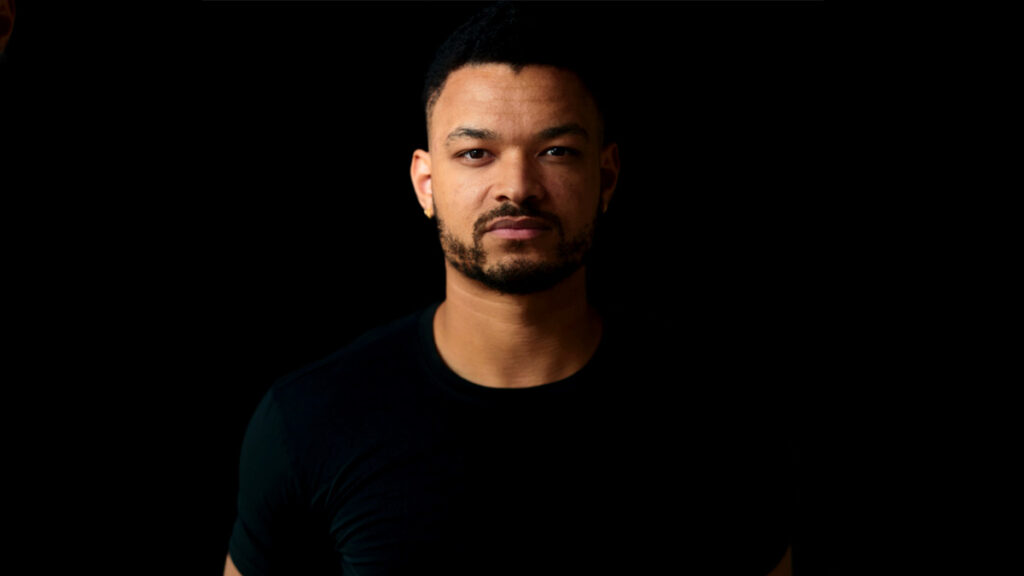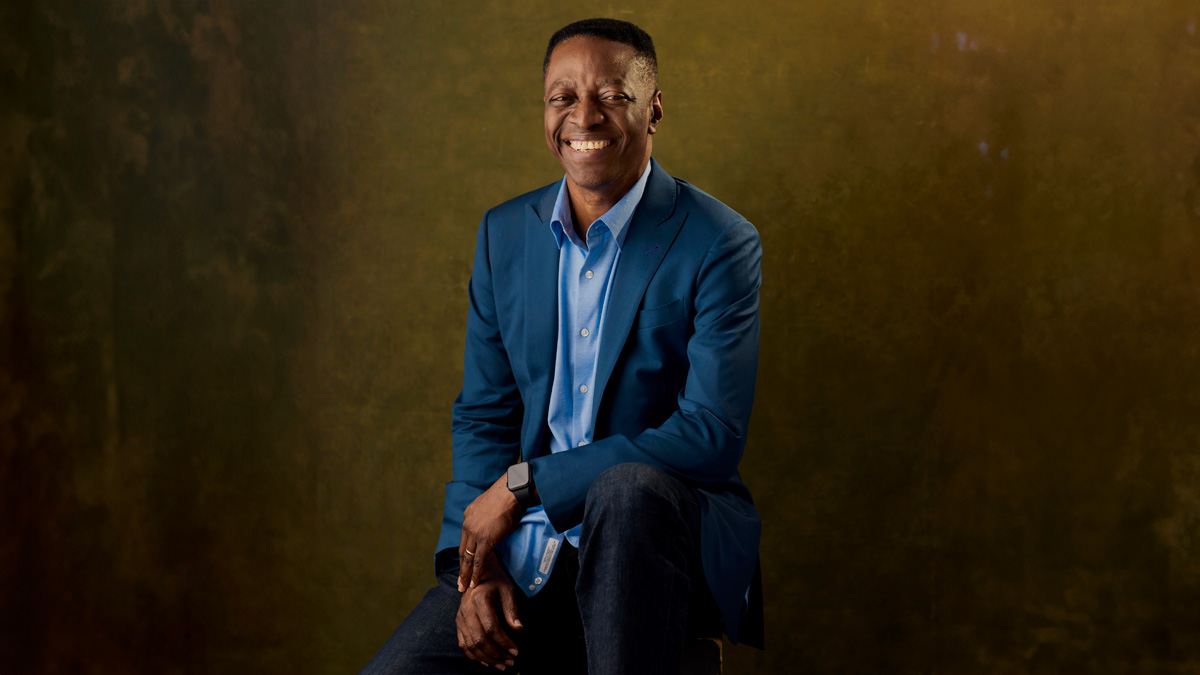‘I’ve never done anything because I wanted it to be the biggest, but because I wanted it to be the best’ – Meet the newest star of Dragons’ Den

He’s the new investor on Dragons’ Den, a university drop-out and a multi-millionaire at just 28. We met with Steven Bartlett for our latest cover story, where he talks about what makes him happy, why his first investor was an idiot, and how you can build your personal brand.
Watch our exclusive interview with Steven Bartlett
Steven, it’s a common theme for entrepreneurs to not enjoy school – was this the same for you?
Yes, I knew straight away that school wasn’t for me. When I was 16 years old, I stopped going because I only enjoyed my business and psychology classes. I ended up trying to go to sixth form though, but I was expelled and told that I had to take my exams from home.
You’ll be thinking there is a theme here and why did I bother going to university, but I did so because I thought it may be different. However, it was the same and I left after my first lecture.
You then went straight into business and one company you started has now become very well-known – and it went public following a merger. How did this come about?
I started a social media marketing business and we had hundreds of millions of followers across sports and music; and we were getting paid by Amazon, Uber and other big brands to teach them how to utilise social media.
We then split the business into two and launched a media business alongside it. I knew how to implement successful marketing campaigns, so the obvious next step following this was to create our own products – and we launched an e-commerce vertical, which is now the biggest part of our company and will turnover £250m this year.
We were looking to bring in e-commerce expertise, and we located a business in Germany that was the perfect match and we merged with them, which made us a public company and formed The Social Chain.
You set your business up at a very young age. Was your vision always to grow it so big or did you just want to have a job?
I’ve never done anything because I wanted it to be the biggest, but because I wanted it to be the best – and often a consequence of being the best, is that you’re the biggest. With me, I want to do everything well and get very good results.
As many are pushing back at the idea of an 80-hour week – Do you believe you can have success without sacrifice and hard work?
Thinking about sacrifice can lead you astray, as it can suggest you’re doing something you don’t want to do. But I work because I want to.
Yes, I’d like to watch Manchester United play on a Sunday, but I will work instead because that’s what I want to do to fulfil my longer-term priorities. Sacrifice can suggest that you’re holding back from pleasure, but business is my pleasure.
Hard work really matters too, and I can’t think of many examples where people have achieved great success without hard work.
You can be great by not working hard, but could you have been greater and achieved more by working harder? The answer will most likely be yes.
That’s interesting and considering your long-term goals, how do you stay focused on them?
I believe this comes down to what I value in life. When I do something, I’m all in, and I don’t compromise on that. It’s the same with my health because I’ll go to the gym every day and I’ll also eat healthily.
With my business and my podcast ‘The Diary of a CEO’, I’m all in on it and I don’t care about the rest of it. Those parts of my life are intrinsic to my values and what I like, so I don’t feel like I need to find motivation.
So, you feel that if you enjoy something you don’t need to find motivation?
Broadly, yes. For example, I couldn’t go to school and listen to the teachers which was why my attendance was 30%. I couldn’t get motivated to do this but it’s the opposite in my business and my life, so when I do this, I look motivated to the outside world.
I want to change tact and talk about developing a personal brand. Is there a recipe for success in doing so, or a path that will lead to better results?
Firstly, you need to ensure your story is compelling and it is valuable to the world. You need to stand out too and being different can mean that you are brutally honest, vulnerable, or hilarious.
A stance I took was to be very honest and open, despite what people think or say about me. I believe that saying what you believe in and cutting through the fluff and virtual signalling is very important if you’re going to develop a successful, personal brand.
Consistency is important too, and I don’t mean doing this for two months. I mean starting now and being here ten years later, and still asking questions of yourself.
I enjoy the process of developing my podcast, even when nobody was listening because it was like therapy to me. It’s inevitable if you’re not a total idiot because you learn everything by being consistent.
My first posts were ‘everything happens for a reason and stay humble’ – they were just nonsense, but by listening to feedback and looking at analytics I learnt that nobody is interested in that, so I’ll do something different tomorrow. If you do that for ten years, you can become a master in anything.
So, I would say that the answers to developing a successful personal brand are hidden in consistency, but people don’t want to hear that because unguaranteed rewards ten years from now are a hard sell.
Finally, that’s the message part and the next part is the platform and understanding where to put your message.
When you have time to reflect, what would you say happiness is to you?
That’s a big question and every day I feel content with my life, but I still have a burning desire which tells me how much more I could be achieving in all walks of life.
To start to answer, this I would say that striving towards a worthwhile goal, being challenged, and being surrounded by people I love makes me happy.
It’s fluffy, but I feel the answer to this question must be because it will apply to everybody, and I think being happy has some commonality to it.
From your experience, what would you say are the common traits of successful people?
Success can mean something different to a teacher or a mother, for example, and I think it’s important to say this.
However, when you are talking about a businessperson or a leader; what I’ve seen is that resilience is crucial.
You also increase your probability of success if you are a good salesperson, because sales are everything, it’s about persuading investors; it’s about attracting talent; and of course, it’s about selling your products and services too.
Another common trait is hard work and people hate that because hard work has become toxic – but you have never seen an Olympian that didn’t work hard.
All successful people work hard. Of course, nobody wants to get burned out, but hard work is why people achieve great things.
You have replaced Tej Lalvani on Dragons’ Den – can you give us an insight into what type of investments you’ll be making?
A good idea with a bad entrepreneur is a bad investment but an average idea with a great entrepreneur can be a good investment. This is something I’ve learnt and it’s interesting because when I was 18 years old, an investor agreed to give me £10,000, and he said, ‘I don’t know what your business idea is, but I know you’re going to do something good one day’.
I remember thinking this guy is an idiot and it wasn’t until I invested in a great product which had awful founders that I realised what he meant.
You’re clearly a thinker Steven, and somebody that understands the infinite game. What worries you about the future?
I am concerned about climate change. This is clearly the big issue, and it is something that is creeping up on me a lot. I’m also concerned about misinformation because this polarises and divides people, and when you get people who are divided, you end up with people in power who are divisive.
So, climate change is the big macro issue and what impact it is having on developing countries; but also misinformation.
You mentioned political leadership there – would you ever consider entering politics?
No. People who are climbing often believe that politics is the next rung up the ladder but people in power are just a reflection of what society is thinking and feeling. The most important people are those who are influencing the electorate and what they are thinking and feeling because then they just pick their puppet. So, I want to have a bigger platform to share my opinions and influence for good.
You have met over a hundred leaders on your podcast – what is your conclusion from all the accumulated wisdom you have listened to?
It’s that people are predictable. I was expecting to find that we’re all so different, but it has been liberating to learn that we’re very similar as humans and that our reaction to experiences tends to be common. This gives me more empathy because I know we feel the same pain and go through the same experiences.
You talk about commonality there – what is your message to a leader who is in pain and struggling right now because things aren’t going as they’d like them to?
When you suffer and it’s not worthwhile then I think it’s time to quit. If pain isn’t worth it, then just quit. What I’ve come to learn is when you can choose your suffering and it is worthwhile, that’s the best place to be.
Quitting can also be for winners and knowing when to change direction if something is not working is important. The difficult moments in life do so much more for you and I’ve had success because my first company failed tragically.
Most of the value was generated in the first couple of years where I kept failing. In the last five years my rate of learning has slowed, and I feel that I need to keep myself in pain and suffering as they are my growth moments.
But I would say to take just one step outside the zone of comfort, as sometimes if you step too far outside, you can get eaten by the sharks.
I try to keep myself in mild chaos as much as possible because the science says that’s good for you.




